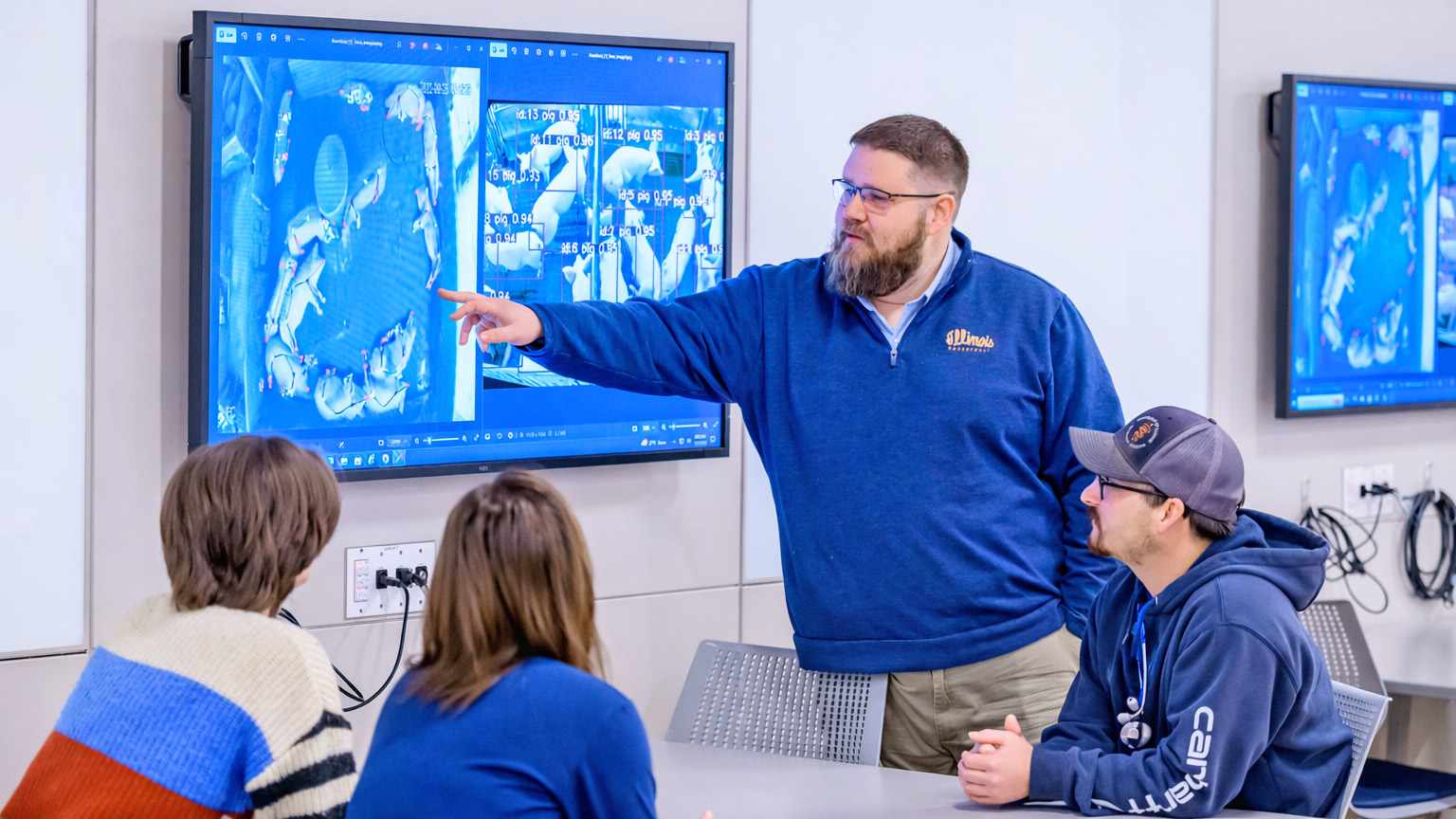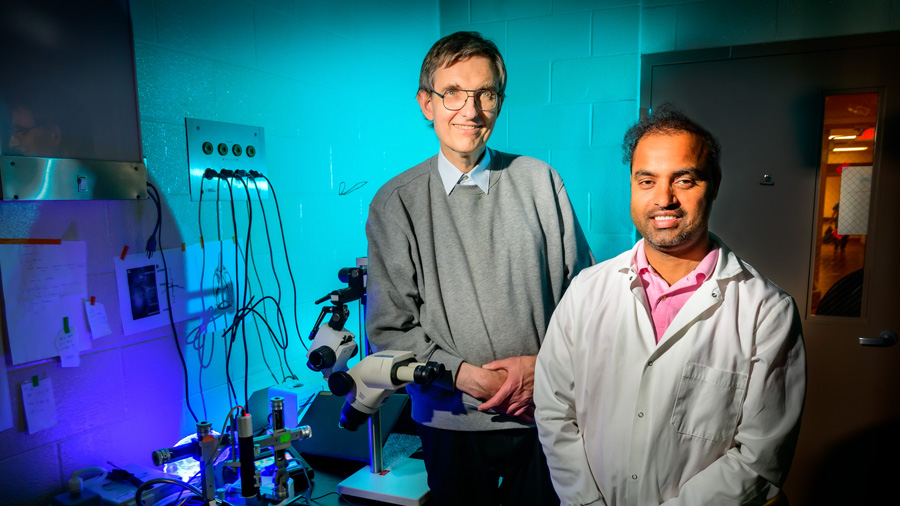Kun Wang joined the Department of Comparative Biosciences in 2024 as an assistant professor. He also has a faculty appointment in the Department of Bioengineering in the Grainger College of Engineering. He is a member of the Cancer Center at Illinois.
Using about 60 words, how would you explain your main area of research focus to someone sitting next to you on an airplane?
I am a computational cancer researcher focused on immunotherapy, a promising treatment that “trains” a patient’s immune system to recognize and attack cancer cells. My research aims to improve its efficacy by identifying biomarkers and potential resistance targets. To achieve this, I develop computational methodologies, including artificial intelligence (AI)/machine learning models, that leverage large-scale omics, imaging, and clinical trial data from patients.
How will your work impact quality of life and benefit society both locally and globally?
I believe the impact of my work can be seen from four levels.
First, as tool developers, we create generic tools that are freely accessible to the scientific community and help facilitate the work of other researchers.
Second, we prioritize the translational value of our research. I constantly consider how to leverage our work to benefit patients and improve clinical care. For example, I have been developing biomarkers and proposing novel combination immunotherapy targets to improve treatment efficacy. I hope that one day, some of our work will be validated in clinical trials, implemented in clinical settings, and ultimately improve patient outcomes.
Third, our work reveals fundamental mechanistic insights in biology and offers valuable prospects for future research.
Another important contribution of my lab is nurturing the next generation of cancer researchers by providing trainees with comprehensive scientific training in cancer research.
What excites you most about the future of research in your field?
The most exciting aspect of the future in our research field is the rapid accumulation of biomedical data, combined with recent advances in AI and machine learning (ML). Large volumes of high-quality data form the foundation for computational research. The advent of innovative and high-throughput profiling techniques, such as single-cell omics, spatial omics, and multiplex imaging, offers exciting opportunities to study cancer from multiple angles and at various levels of resolution.
Furthermore, the revolutionary progress in AI/ML makes this data even more valuable by providing powerful tools to transform raw data into biologically meaningful insights and actionable solutions.
What tools are critical to the work you do?
The most critical tool for computational biologists is the high-performance computing system. As mentioned earlier, the volume of biomedical data is continuously increasing, requiring more powerful approaches for analysis.
In our research, we work extensively with single-cell and spatial data, high-dimensional and complex modalities that demand high-speed processing units and large memory capacity.
Fortunately, the supercomputer center and Illinois campus cluster at our university provide excellent infrastructure that fully supports the computational needs of researchers like us.
How has the broader U. of I. research community factored into your success?
I joined the University of Illinois in August 2024 and have been impressed by the broader U. of I. research community.
First, I have had the opportunity to engage with researchers from diverse backgrounds and areas of expertise. Brainstorming with them has inspired new ideas and directions for my own work, even though they are not directly involved in cancer research.
I also truly appreciate the supportive and collaborative environment here. Since joining, many groups have already reached out to collaborate on research projects and grant writing, which has been incredibly encouraging.
Most importantly, we have talented and motivated students and fellows who are helping turn my research vision into reality.
More about Kun Wang
Kun Wang
Assistant Professor
Comparative Biosciences
Education
- PhD, University of Maryland, College Park, Maryland (Computational Biology, Bioinformatics and Genomics)
- Postdoc Fellow, Cancer Data Science Lab, National Cancer Institute (NCI), Bethesda, Maryland
Academic Positions
- Research Fellow, Cancer Data Science Lab, National Cancer Institute (NCI), Bethesda, Maryland




